Spain offers a plethora of diverse landscapes and urban locations, making it a winning backdrop for international shoots.
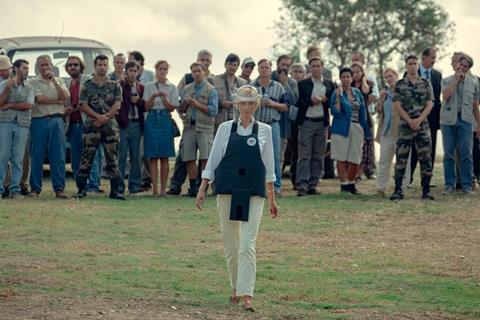
As a shooting location, Spain boasts an average 3,000 hours of sunshine per year, a reliable transport network, well-trained local crews kept busy by international streamers, a seasoned tourist industry and good-value accommodation and catering — all of which contribute to a winning backdrop for international shoots.
But there are other key attractions for international productions, including the country’s 30% tax rebate — and that figure can go up to 54% in hotspots such as the Canary Islands.
Visiting international shoots have risen steadily year-on-year, buoyed by the rise in tax incentives that lifted the rebate to 30% in 2020, until the impact of the Hollywood actors and writers strikes slowed growth in 2023. “The workflow has not quite picked up yet at the start of 2024,” concedes Fernando Victoria de Lecea, producer at service company Meñakoz Films and president of Profilm, the association that includes most of the main service providers in Spain.
“It is unlikely we will see the boom of productions we witnessed right after the pandemic,” agrees Peter Welter, CEO of service company Fresco Films, which has worked on series including HBO’s Game Of Thrones, prequel House Of The Dragon and Netflix’s 3 Body Problem. “Not just in Spain — it feels like a global trend.”
That said, the number of international productions heading to Spain is substantial, making it a competitive territory. Later this year, Spain Film Commission is due to release a report on the economic impact of shooting, which could help to lobby for a higher tax rebate rate.
“The results will not only reveal the positive impact the sector has on the country’s economy, but will also provide the Spanish government with valuable information for its policies towards the audiovisual industry,” says Carlos Rosado, president of Spain Film Commission.
The hope for both the various film commissions as well as local service companies is that the government will contemplate another rise of the tax rebate to fully exploit the possibilities of the sector and make it more competitive against neighbouring countries.
Country double
Spain boomed as a filming destination in the 1960s, hosting David Lean’s Lawrence Of Arabia and a slew of spaghetti westerns. More recently, it has specialised in doubling for other countries: season six of The Crown filmed in Mallorca and Catalonia, recreating settings in Australia, Mustique, the US, Greece and France.
The large number of heritage sites also make Spain well suited to period stylings: Game Of Thrones and House Of The Dragon have both used Spanish locations.
Duncan Muggoch, co-executive producer of 3 Body Problem and producer of Game Of Thrones, has experience working in Spain. “For Game Of Thrones we shot in almost every single region in the country,” he says. “For me, Spain has always been the country in Europe that has the biggest variety of locations. The rebate is pretty good and I like Spanish crews. I would bring whole shows to Spain if I could. If there were three big studios, many more shows would come and base themselves here. At the moment, Spain is more a location country.”
For 3 Body Problem, an adaptation of the bestselling science-fiction novels by Cixin Liu, Muggoch shot in an old military listening station on top of a mountain in Extremadura, posing as China. “There were logistical challenges since it was on top of a mountain. However, because it was a military base [there was] a proper road, so we could get all our vehicles up to the top. We had incredible vistas.”
International projects
Other major international shoots include Marvel Entertainment and Sony Pictures’ Venom: The Last Dance, directed by Kelly Marcel and starring Tom Hardy, Juno Temple and Chiwetel Ejiofor. It shot at the start of 2024 in various locations including Murcia, Aragon and Ciudad de la Luz (City Of Light) Studios in Alicante.
The Penguin Lessons, directed by Peter Cattaneo (The Full Monty), produced by 42 and starring Steve Coogan, shot in Catalonia as well as the Canary Islands. Based on Tom Michell’s book of the same name, it is the story of an Englishman who travels to Argentina in the 1970s to teach in a boys’ boarding school.
Netflix opened its first European production hub on the outskirts of Madrid in 2019, and is very active in Spain with productions shot in English as well as Spanish (Money Heist and Elite, among others).
The now fully operational Ciudad de la Luz Studios was used for Xavier Gens’ shark thriller Under Paris (Sous La Seine) starring Bérénice Bejo.
Netflix productions using Spain as a location include Kaos, a reimagining of Greek mythology, shot in Andalusia, Aragon and Madrid, and the sixth season of Cobra Kai, starring Ralph Macchio, which shot in several locations in Catalonia including Barcelona.
Disney+ used Andalusia as a location for Second World War series We Were The Lucky Ones, created by Erica Lipez, as well as Rivals, an adaptation of Jilly Cooper’s novel produced by Happy Prince. Disney+ is also involved in the production of Regreso A Las Sabinas, a 70-episode series that will stream daily from next autumn — the first of its kind in Spain from an international streamer. It was filmed in Catalonia and stars Andres Velencoso, Celia Freijeiro, Angela Molina and Olivia Molina.
Spanish international platform Movistar Plus+ also shot its ambitious Bellas Artes in the territory. Argentinian directors Mariano Cohn and Gaston Duprat’s dark comedy series, set in the art world, stars Oscar Martinez (Venice 2016 best actor winner for the directors’ The Distinguished Citizen). It was released locally in April with a simultaneous release in Latin America (through Star+).
Spanish filmmakers Pedro Almodovar and Alejandro Amenabar have also been busy with upcoming films. The Room Next Door is Almodovar’s first feature in the English language, and stars Tilda Swinton (with whom the director worked on short The Human Voice) and Julianne Moore. It started shooting in March between Madrid and the US. Swinton plays a war reporter who has lost touch with her daughter; Moore plays a writer friend.
This spring, Amenabar (The Others, The Sea Inside) has been filming The Captive, an ambitious period movie about writer Miguel de Cervantes. Produced by Fernando Bovaira at Mod Producciones, Himenoptero and Misent Producciones, the film will recount the life of a young Cervantes when he was taken captive in Algiers in 1575 — an experience that pushed him to explore his writing, eventually leading to masterpiece Don Quixote.
THE LOWDOWN: SPAIN
European status
Spain is a member of the European Union and part of the Schengen Area. Its currency is the euro.
Financial incentives
The rate of the national tax rebate is 30% for the first $1.07m (€1m) of local spend by an international shoot and 25% thereafter. The deduction will be applied provided the expenses incurred in Spanish territory are at least $1.07m (€1m), though animation has a minimum expenditure of $214,000 (€200,000). Visual-effects services can also run under $1.07m (€1m). The cap for the total tax rebate per feature is $21.4m (€20m) and $10.7m (€10m) per episode of a TV series.
Spain is structured as different autonomous communities and some have alternative tax regimes for international shoots. In the case of the Canary Islands, the tax rebate offered is 50% (compatible with an income tax rate of 4%) on eligible spend on the islands, provided expenditure amounts to at least $1.07m (€1m) — in the case of animation it is $214,000 (€200,000) — and a service production company with tax domicile in the Canary Islands is hired. Deduction for the first $1.07m (€1m) is 50% and 45% thereafter. When shooting on the Canary Islands, features have a ceiling of $38.5m (€36m) and series have a cap of $19.3m (€18m) per episode. Navarre has a 35% tax credit with a $5.35m (€5m) cap. Deduction may not exceed 80% of the total budget of the production.
The region of Biscay in the Basque Country offers a rebate of 60% — with an extra 10% for shoots in the Basque language — if expenses are above 50% of the budget for all types of productions. The rebate is 50% if expenses in Biscay are 35%-50%, while a 40% rebate is offered if expenses range between 20%-35%. The cap is set at 50% of the global production’s cost, including all other grants, higher in the case of European co-productions.
Full details:
Infrastructure and crews
The country’s longstanding tourism industry and public investment in the transport network make accommodation and travel easy for international crews.
Spain Film Commission and the vast network of regional and local film commissions offer information about service production companies, as does Profilm (X en.profilm.es), the organisation that represents most of the producers both on the mainland and the Canary and Balearic islands: Nostromo Pictures, Sur-Film, Calle Cruzada, Meñakoz Films, Fresco Film, Volcano Films, Babieka Films, Palma Pictures, El Ranchito, Minded Factory, Seven Islands Film, Mediapro Services, Thunder North, Nanu Films, Bambú Producciones, Brutal Media and Filmax. Spain can also provide specialists for underwater shoots.
The facilities include Ciudad de la Luz (City of Light) Studios in Alicante, on the eastern coast, with the largest soundstage in Spain. It is now fully operational and offers six soundstages that total 11,160 square metres, an exterior water tank of 100×80 metres, nearly 10,000 square metres of workshop and storage space and 29 acres of backlot.
In January 2024, California’s MBS Group won the public concourse to manage the studios for the next five years.
Secuoya Studios in Madrid — part of the Madrid Content City facilities and home to Netflix’s European production hub — offers 10 soundstages ranging from 1,200 to 2,000 square metres. There are also studios on the outskirts of Barcelona, the Parc Audiovisual de Catalunya with four soundstages. Facilities in the Canary Islands include Gran Canaria Studios (with 1,200 and 1,800 square metre soundstages).
In the Balearic islands, Mallorca has the MN and Palma Pictures studios, which offer a soundstage of 1,000 square metres each. There are also construction plans for Mallorca Green Film Studios in Marratxi.
Spain has also invested in virtual stages. Local company El Ranchito created the plane crash in the Andes for JA Bayona’s Oscar-nominated Society Of The Snow, combining its technology with the real mountains of Sierra Nevada. The biggest virtual set in Spain is scheduled to open in Galicia this year: a 1,600 metre stage with 750 metres equipped for immersive shooting using LED panels.
Size matters
Spain’s 506,000 square kilometres are easy to navigate thanks to the number of airports beyond the hubs Madrid and Barcelona. There is also a high-speed rail network (with affordable prices compared to countries such as the UK) and 290,000 kilometres of motorway and roads. The country also has 8,000 kilometres of coastline.







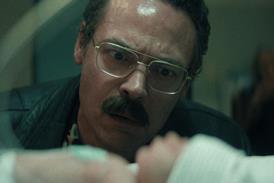




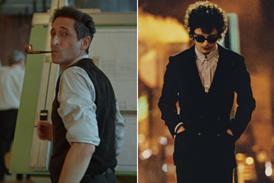
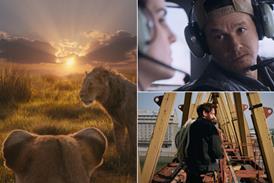
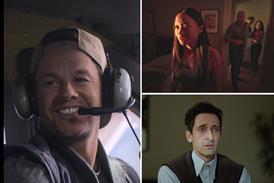
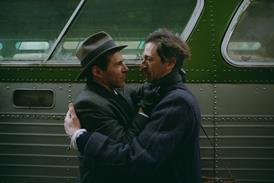
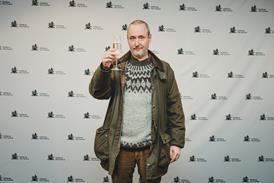
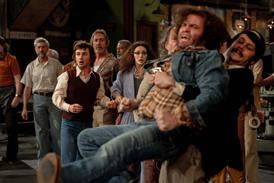







No comments yet